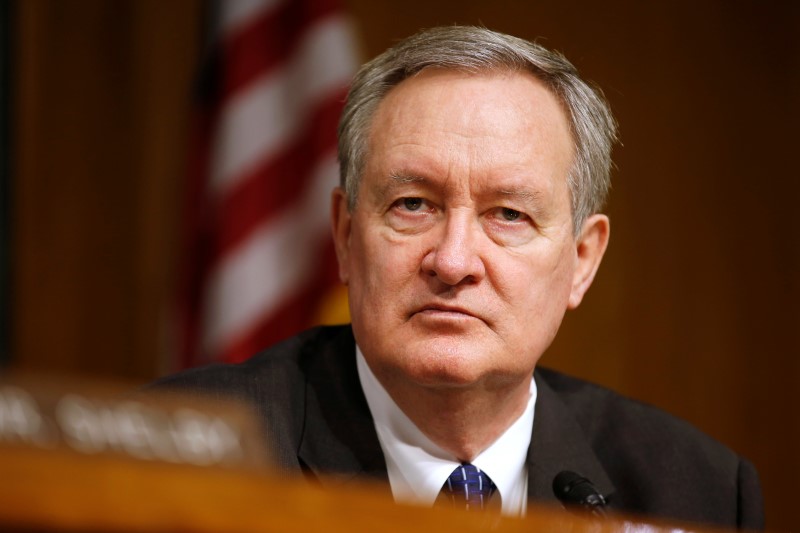Investing.com’s stocks of the week
By Pete Schroeder
WASHINGTON (Reuters) - Senior U.S. Republican and Democratic Senators said on Wednesday they would push ahead with efforts to reach a bi-partisan deal on rolling-back some financial rules introduced the 2008 financial crisis, even after a leading Democratic lawmaker walked away from talks.
Their comments bolstered hopes among banking lobbyists that Congress may yet agree legislation to roll-back some aspects of the 2010 Dodd Frank law, potentially cutting billions in costs for banks, after bi-partisan discussions appeared to falter.
Senator Sherrod Brown, the leading Democrat on the Senate Banking Committee, said in a statement on Wednesday that he was stepping away from months-long private negotiations with the Committee's Republican chair Senator Mike Crapo over rolling-back elements of the 2010 Dodd Frank law, saying they had reached an impasse.
On Wednesday, however, Crapo told reporters he was still working towards a regulatory reform bill and would renew efforts to reach a bipartisan compromise.
"I intend to move forward to build a bipartisan solution, and I hope to be able to do so soon," Crapo told reporters.
Bank lobbyists told Reuters they remained optimistic a bill still could be passed, saying Brown's exit had cleared the path for several Democrats more sympathetic to Crapo's position to take over the negotiations.
Spokespeople for Senators Heidi Heitkamp and Joe Donnelly, two of the banking panel's moderate Democratic members, told Reuters on Wednesday they were open to rekindling the talks.
"Congress needs to make the financial regulatory system work better for everyone, and I’m willing to work with anyone on a deal that would accomplish that goal,” Heitkamp said in a statement.
Donnelly said in a statement he believed there was still an opportunity to negotiate a relief package for community financial institutions "while protecting consumers and ensuring the safety of our financial system."
The House of Representatives has already passed a broad rewrite of Dodd-Frank legislation, but the Senate will ultimately determine what, if any, relief the Republican-led Congress hands to banks.
Industry expectations on a final deal had been modest because Senate Republicans need eight Democrats to support their efforts in order to pass changes to Dodd Frank.
The exact shape of a regulatory reform bill is not public.
There is bipartisan support for easing requirements on smaller banks and credit unions, but reducing the number of banks that face stricter oversight because they are considered critical to the financial system has proved a point of contention.
Currently, banks with over $50 billion in assets are considered "systemically important " and must comply with stricter rules. Republican lawmakers are considering raising that threshold, but this is opposed by some powerful Democrats including Senator Elizabeth Warren.
“After working in good faith, it’s clear we will not be able to reach a compromise that protects consumers while supporting small banks and credit unions," said Brown in a statement.
"I continue to support small banks and credit unions, but I cannot agree to gutting protections for working people and taxpayers.”
(This version of the story was refiled to add missing word "following" in the lead paragraph)
